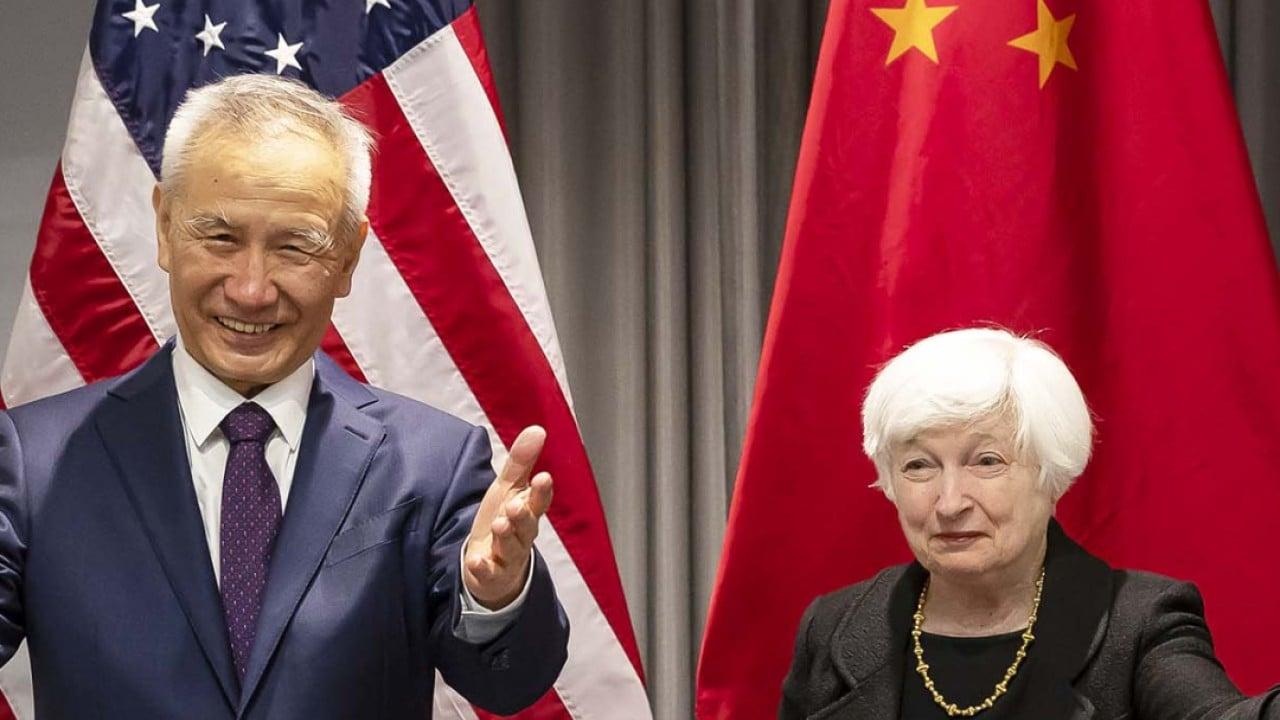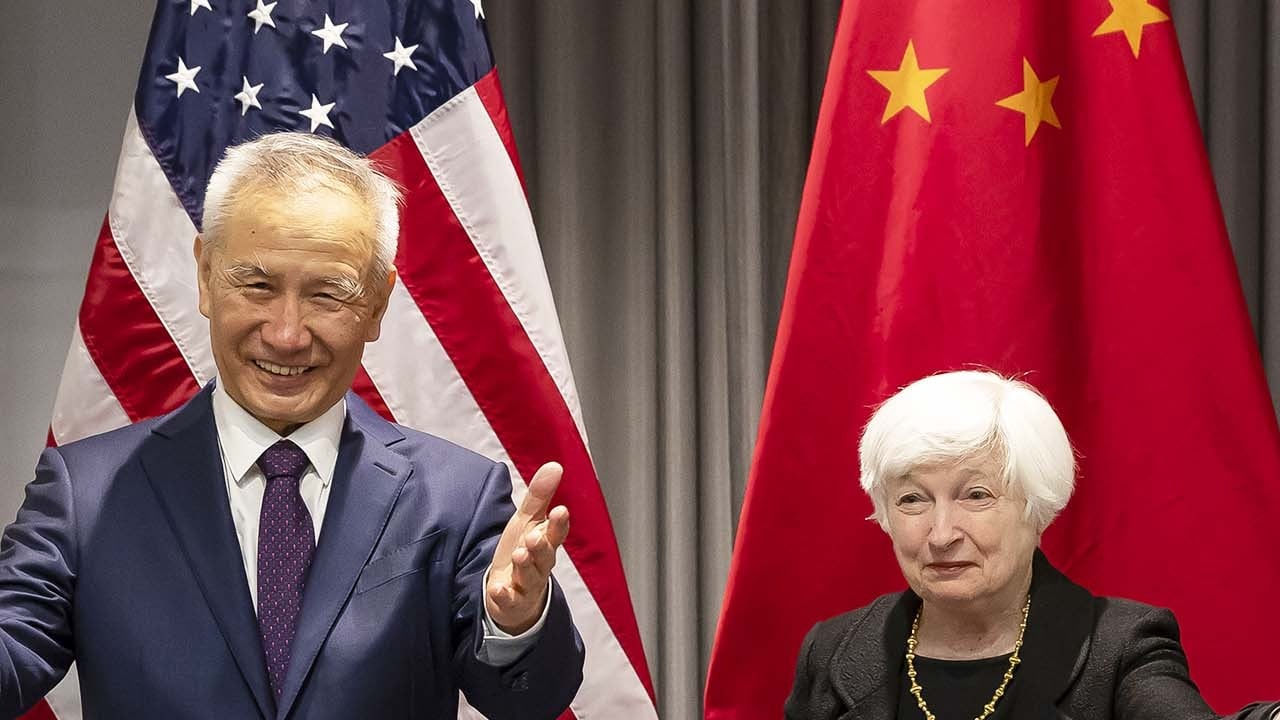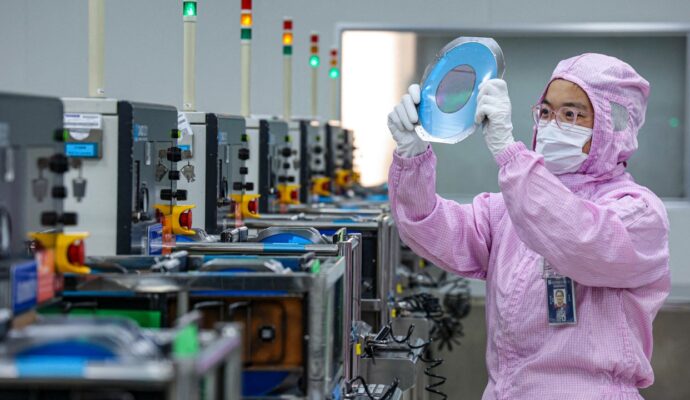
“Even though these policies may have economic impacts, they are driven by straightforward national security considerations. We will not compromise on these concerns, even when they force trade-offs with our economic interests.”
Both countries have been trying to strike a balance between their strong economic ties and their security concerns, but Pang Zhongying, a professor of international affairs at Sichuan University, said the risk of decoupling remained high.
“If both countries allow security to dominate bilateral relations, it will only accelerate mutual decoupling,” Pang said.
In a move likely to further rattle Beijing, US President Joe Biden is expected to sign an executive order to curb investments by US firms in key sectors of the Chinese economy, including hi-tech industries, according to a report by Bloomberg.
On Friday Chinese foreign ministry spokesman Wang Wenbin accused the US of trying to politicise tech issues. “The real goal is to deprive China of its development rights. It is pure economic coercion,” he said.
The US has hardened its economic approach to counter China’s growing economic influence. In May last year it set up the Indo-Pacific Economic Framework – designed to strengthen cooperation in areas such as trade, supply chain resilience and clean energy – with 13 allies and partners in the region, including Japan, Australia, India and Vietnam.
In October, it also introduced a sweeping set of restrictions on semiconductor technology exports to China.
“Meanwhile, the US is reconciling with trade partners such as Europe, Japan and South Korea and their trade tensions have significantly been eased,” said Shi Yinhong, an international relations expert at Renmin University of China.
“There’s no sign that the Biden administration is to ease tariffs on Chinese imports that date back to the Trump administration,” Shi said. “So we can’t make any conclusion that some positive changes are expected.”
On Thursday, Yellen said she planned to visit China “at the appropriate time”, although some Chinese observers questioned how quickly this might happen.
“It remains to be seen to what extent Beijing recognises Yellen’s speech as an effort to pave the way for a visit to China, though I think her tone was quite moderate,” Pang said.
Pang said her emphasis on national security was tailored for her audience in the US, where there is a general consensus over the need to compete with China.
Zhao Xijun, a finance professor at Renmin University in Beijing, said divisions over issues such as Taiwan remained deep.
“This has left a very weak basis for high-level engagement between the two countries,” Zhao said.
Without naming Yellen, Wang, from the Chinese foreign ministry, said no country had the right to interfere in its relationship with Russia.


